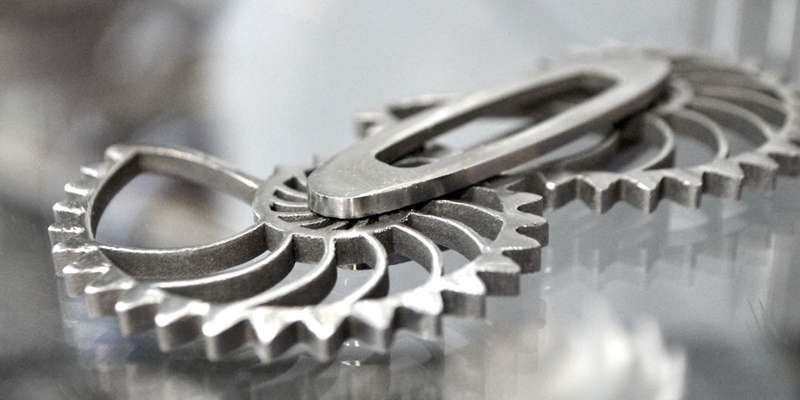1. Introduction to Titanium Metal Alloys
Titanium metal alloys are advanced materials formed by combining titanium with various alloying elements to enhance performance. While pure titanium offers an impressive strength-to-weight ratio, it may not always meet the demanding needs of specific industries. By incorporating additional elements such as aluminum, vanadium, or molybdenum, titanium alloys demonstrate significantly improved properties in areas like strength, ductility, and corrosion resistance.
These alloys are indispensable in critical industries such as aerospace, medical, and automotive due to their exceptional mechanical properties and ability to withstand challenging conditions. The strategic alloying of titanium provides solutions for high-performance applications that pure titanium alone cannot fully address.
2. Composition and Types of Titanium Alloys
Titanium alloys are generally classified into three primary categories: alpha (α) alloys, beta (β) alloys, and alpha-beta (α-β) alloys. In addition to these foundational categories, numerous specialized titanium alloy compositions are available to meet the specific needs of various industries.
2.1 Alpha (α) Alloys
Alpha alloys contain elements such as aluminum and tin, improving the alloy’s high-temperature performance and oxidation resistance. Key characteristics include:
- Exceptional corrosion resistance
- High-temperature stability
- Superior weldability
These properties make alpha alloys particularly useful in aerospace applications and chemical processing equipment. However, they tend to have a lower strength-to-weight ratio compared to other titanium alloy types.
2.2 Beta (β) Alloys
Beta alloys, composed of elements like vanadium and molybdenum, offer unique advantages:
- Higher strength
- Enhanced machinability
- Greater ductility
These characteristics make beta alloys ideal for applications requiring toughness and structural integrity, such as in the aerospace industry. Titanium Alloy Ti-17, for example, is a well-known beta alloy widely used in aircraft components due to its high strength and durability.
2.3 Alpha-Beta (α-β) Alloys
Alpha-beta alloys combine the strengths of both alpha and beta phases, resulting in a versatile and high-performance material. These alloys are known for:
- A balanced combination of strength, ductility, and corrosion resistance
- Versatility across industries, from aerospace to marine and medical applications
Titanium 6242 Alloy and Titanium 6246 Alloy are prominent examples of alpha-beta alloys used in high-temperature and high-stress environments, particularly in turbine engines.
2.4 Other Titanium Alloys
Beyond the standard categories, several specialized titanium alloy compositions exist to address specific industrial needs:
- TZM Alloy: A molybdenum-based alloy designed for high-temperature environments with excellent strength and creep resistance.
- Cast Titanium Alloy: Developed for ease of casting and used in complex structures.
- Titanium Niobium Alloy: Valued for its biocompatibility, making it ideal for medical implants and surgical devices.
- Zirconium Titanium Alloy: Known for its superior corrosion resistance, often used in chemical processing industries.
- Platinized Titanium Anode: Utilized in electrochemical processes for its outstanding conductivity and corrosion resistance.
- Titanium 5553 Master Alloy: A high-strength alloy predominantly used in aerospace structural applications.
- Titanium Clad Materials: Combining titanium with other metals for increased durability in corrosive environments.
- Titanium Alloy Powders: Essential for additive manufacturing and 3D printing, offering flexibility in creating lightweight and complex structures.
- Titanium Aluminum Master Alloy: Employed in the production of superalloys, improving strength and high-temperature performance.
By leveraging the properties of these specialized titanium alloys, industries can select materials tailored for specific applications, from medical implants to aerospace components.
3. Key Properties: Strength and Melting Points of Titanium Alloys
Titanium alloys are renowned for their superior mechanical properties, particularly their strength and melting points, which make them essential for high-performance applications.
3.1 Strength
The addition of alloying elements such as aluminum, vanadium, and molybdenum significantly increases the tensile strength of titanium alloys, surpassing that of pure titanium. This enhanced strength makes titanium alloys a preferred choice for industries where high performance under stress is critical. For example, Titanium 5553 Master Alloy is frequently used in aerospace structures that demand both strength and weight reduction.
3.2 Melting Points
Pure titanium has a relatively high melting point of 1,668°C (3,034°F). The introduction of other alloying elements in titanium alloys can cause variation in these melting points. Beta titanium alloys, such as those containing vanadium or molybdenum, generally have higher melting points, making them suitable for high-temperature applications like turbine engines. Understanding the melting points of specific alloys is crucial for determining their suitability for extreme conditions, particularly in manufacturing processes like forging and casting.
4. Applications of Titanium Alloys
Titanium alloys are highly versatile and find applications across various industries due to their outstanding mechanical properties.
4.1 Aerospace
Titanium alloys are indispensable in aerospace manufacturing due to their high strength-to-weight ratio, corrosion resistance, and ability to withstand extreme temperatures. Their use in aircraft frames, engines, and landing gear helps reduce weight, improving fuel efficiency and overall performance. Alloys like Titanium Alloy Ti-17 and Titanium 6242 Alloy are commonly used in these high-stress, high-temperature environments.
4.2 Medical
In the medical sector, titanium alloys are used extensively for surgical instruments, orthopedic implants, and dental applications. Titanium Niobium Alloy, for example, is biocompatible and corrosion-resistant, making it ideal for long-term implants in the human body. The strength and ductility of these alloys ensure they can support load-bearing applications, such as joint replacements and bone plates.
4.3 Automotive
The automotive industry leverages titanium alloys for high-performance vehicle components. Alloys like Titanium 5553 Master Alloy and Titanium Alloy Powders are used in engine components, exhaust systems, and suspension parts, offering reduced weight and enhanced fuel efficiency. Titanium alloys contribute to overall performance improvements while also increasing the lifespan of automotive parts.
5. Titanium Alloys vs. Pure Titanium
When comparing titanium alloys to pure titanium, the advantages of using alloys become clear.
- Pure Titanium: While pure titanium offers unmatched corrosion resistance and biocompatibility, it is heavier and more costly than many titanium alloys.
- Titanium Alloys: Titanium alloys can be engineered to balance strength, ductility, and corrosion resistance, making them more versatile for specific industrial needs. For example, Zirconium Titanium Alloy provides superior corrosion resistance in chemical processing, while Titanium Aluminum Master Alloy enhances high-temperature performance in aerospace applications.
Industries that require specific mechanical properties often choose titanium alloys over pure titanium due to their ability to meet tailored application demands.
6. Conclusion: Harnessing the Potential of Titanium Alloys
Titanium alloys represent a powerful class of materials that extend the usefulness of pure titanium across a wide range of industrial applications. From aerospace to medical and automotive sectors, these alloys offer unparalleled strength, durability, and resistance to extreme environments. By understanding the composition, properties, and specific applications of various titanium alloys, industries can make informed decisions to achieve better performance and cost-efficiency.
For those seeking expert titanium alloy solutions, Metalstek Engineering offers comprehensive expertise in providing high-performance titanium alloys for diverse applications. With a deep understanding of the material’s capabilities, Metalstek is ready to help you meet your unique industrial challenges.
Related Product
- Tungsten Rhenium Alloy
- Tantalum Tungsten Alloy
- Tungsten Heavy Alloy
- Other Tungsten Alloys
- TZM Alloy
- Molybdenum Rhenium Alloy
- Molybdenum Tungsten Alloy
- Molybdenum Lanthanum Alloy
- Other Molybdenum Alloys


